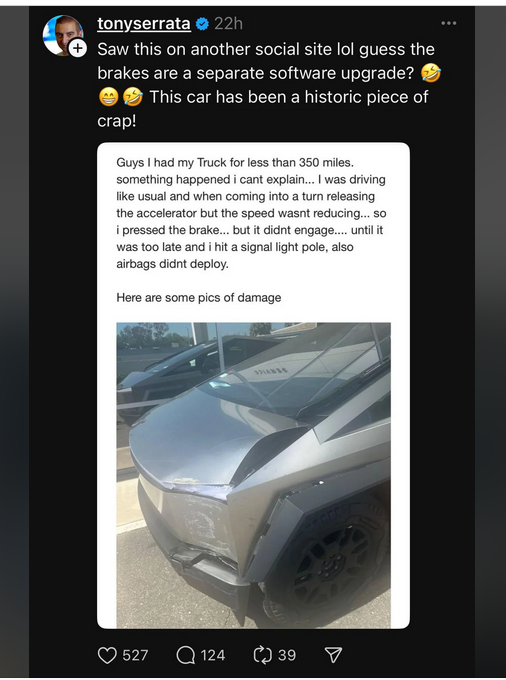A former female Magic Leap executive, who says she was hired to make the augmented reality startup “less of a boys club,” has sued the tech company for unlawful sex discrimination.
The suit also alleges that the hostile work environment has lead to dysfunction, causing the Plantation, Fla.-headquartered company to miss deadlines. Tannen Campbell filed the suit earlier this week in U.S. District Court in the southern district of Florida.
Campbell says that CEO Rony Abovitz hired her in April 2015 as head of strategic marketing and brand identity to help improve gender diversity at Magic Leap and make its in-development augmented reality product more female-friendly.
Magic Leap is a much-buzzed about tech firm that has raised $1.4 billion in funding, with lead investors such as Alibaba, Google and Qualcomm. In June 2016, Magic Leap announced a new partnership with Lucasfilm, focusing on AR games based on the studio’s franchises such as Star Wars.
Magic Leap did not return request for comment on the case.
In her first few months on the job, Campbell said she prepared a presentation on the company’s gender problem — noting that no women were in leadership position at the company and only 14% of employees were women — and offering solutions including recruiting employees from colleges with strong female STEM (Science, Technology, Engineering and Mathematics) departments.
At the July 2015 meeting when Campbell made her presentation, Abovitz arrived late and ended the meeting before she finished, she says in the suit. After three subsequent attempts to meet with Abovitz to show him the rest of the presentation, she “got the message and gave up,” she says.
Campbell was then enlisted as part of a subsequent “female brain trust initiative,” to provide design changes to Magic Leap’s headset meant to make the product better appeal to women, she says. Among suggestions: a new way to attach the “belt pack” since women rarely wear belts. “The group made no decisions and none of the proposed changes were made to the design,” she alleges. “It was window dressing.”
Magic Leap tolerated sexist comments and attitudes in the workplace, she alleges. As an example, she cited the misogynistic nature of one of the apps expected to ship with the headset, a “Dr. G.,” game with no female lead characters, but one in the game’s back story, “a busty woman depicted on her knees” groveling at the hero’s feet.
Women in technology have feared that the burgeoning virtual reality and AR development areas might grow to be as male-dominated at the video game development and the overall tech industry. In her job interview, Campbell says that Magic Leap CEO Abovitz, told her “he wanted his company to be different, and asked (her) if she could help with that.”
However, Campbell alleges, the corporate atmosphere “literally, prevented (her) from doing the job she was hired to do or achieving the goals she and Abovitz had discussed during her initial interview: helping with the ‘pink/blue problem’ or making Magic Leap less of a ‘boys club’.”
Campbell said she also voiced concerns that images and videos used in Magic Leap’s marketing material “was not what the product actually could do.” However, her concerns were “ignored in favor of her male colleagues’ assertions that the images and videos presented on Magic Leap’s website and on YouTube were ‘aspirational,’ and not Magic Leap’s version of ‘alternate facts’,” alleges Campbell, who says she was told in December her job was being eliminated and she was terminated.
Campbell says she refused three months’ severance for an agreement to release any claims she would have against Magic Leap. She filed a charge of discrimination with the Equal Employment Opportunity Commission on Dec. 21, 2016, her suit says.
Beyond gender discrimination, the suit alleges core problems with the company’s culture hinder its ability to compete with rivals in the burgeoning AR space. “The macho bullying atmosphere at Magic Leap fosters a dysfunctional culture which creates chaos and lack of process and structure (and) hinders the company from achieving key product deadlines,” she says in the suit. The company moved back its product launch date “at least 4 times” during her 1.5 years there, she says.
Several media reports in recent months have raised questions about the tech company’s progress towards a consumer product. In a December 2016 interview with Magic Leap chief marketing officer Brenda Freeman, Recode senior editor Peter Kafka cited an investor’s concern about Magic Leap’s ability to create a product. “We are racing toward launch and we’re meeting our goals,” she told him.
Business Insider last week reported that Magic Leap’s engineers were “scrambling” to finish a working prototype of its glasses for this week’s board meeting. Over the weekend, Abovitz took to Twitter to clarify that a leaked photo of Magic Leap’s hardware, published by Business Insider, was a test rig.
“The photo you are all excited about is NOT what you think it is,” he said in a series of tweets. To all of Magic Leap’s fans, he promised: “We will not let you down. “
